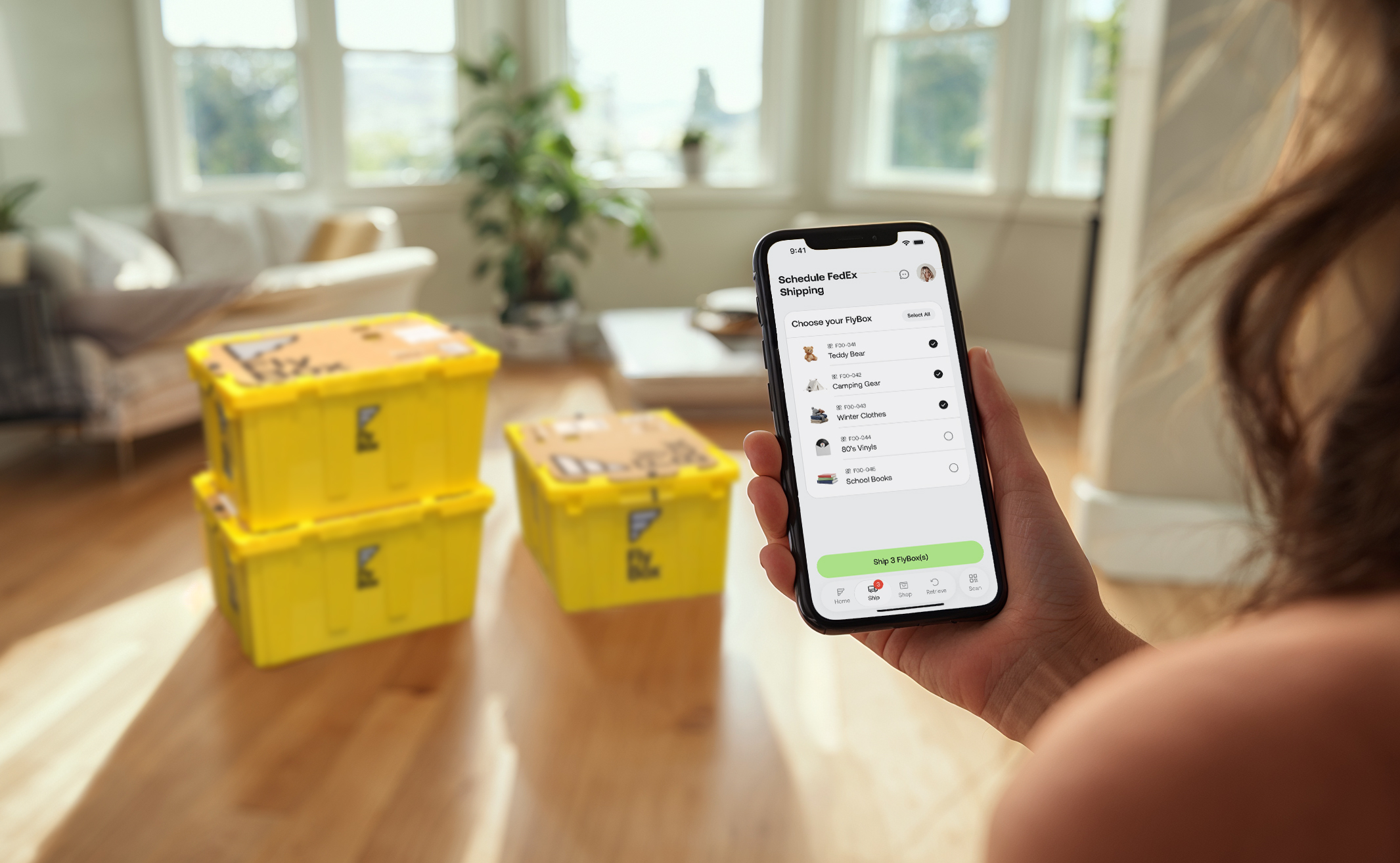.jpg)
Most people overestimate and end up paying for space they don’t use. Traditional storage asks you to guess how much square footage your belongings will take up. FlyBox does it differently.
We help you think in real terms: by room, by lifestyle, by event. Moving out of a studio? You’ll likely need 3–4 FlyBoxes. Renovating your home? Start with 5–7. Our guide walks you through real-life examples so you can make a confident choice — no tape measure required.
Whether you’re moving across town or just making room to breathe, it helps to see how typical life setups translate into FlyBox storage. Here’s a breakdown of common living situations — and how many FlyBoxes they usually need.
Studios don’t leave much wiggle room. If your entryway is doubling as a closet or your kitchen cabinets are maxed out, FlyBox can help. Most studio renters need just 2–4 FlyBoxes to store things like winter coats, kitchen extras, books, or a backup set of linens. It’s a simple way to free up floor space without throwing anything out.
Packing up a one-bedroom? Expect to fill 5–7 FlyBoxes with the essentials. That might include your wardrobe, cookware, small electronics, and framed art. Unlike traditional units, FlyBox lets you organize and label each box by room or category, so unpacking later is actually enjoyable.
For families or shared spaces, storage needs add up fast. 10–14 FlyBoxes are typical for storing extra bedding, kids’ toys, holiday decorations, or home office supplies. If you’re between leases or planning a longer-term move, FlyBox gives you flexibility without having to rent a garage-sized unit.
Students can lighten their load between semesters with just 2–3 FlyBoxes. Perfect for bedding, clothing, school gear, and dorm essentials. No need to lug everything home or cram it into a friend’s place — FlyBox stores it safely until you're ready to move back in.
Whether you're making room for a nursery or clearing out a space for renovations, 4–6 FlyBoxes can hold the overflow. Pack up the non-essentials and keep them out of the way (but always within reach).
Not sure how many FlyBoxes to start with? No problem. Here’s a simple way to plan ahead without overthinking it.
1. Start by grouping your stuff
Walk through your space and mentally group what you’d want to store. Seasonal clothes? Books you don’t use every day? Extra kitchen gear? It helps to sort items by use or room.
2. Use categories to guide your count
Here’s a rough rule of thumb:
- Clothing/shoes: 1 FlyBox per packed closet section
- Books/documents: 1 FlyBox per small bookcase
- Kitchen & home goods: 1–2 FlyBoxes per room
- Decor and seasonal items: 1–2 FlyBoxes
3. Add a buffer
Not sure? Round up. It’s always better to have a little extra space than to run out. And with FlyBox, you only pay for what you store, so unused boxes can stay packed until you’re ready.
Most storage companies ask you to choose by square footage — 5x5, 10x10, 10x20 — but what do those sizes even look like? Unless you're a contractor or interior designer, it’s not always easy to picture.
With FlyBox, there's no guessing. Each box holds up to 60 pounds and fits comfortably in most closets. And instead of paying for a whole room you may not fill, you only store what you actually need.
Traditional Storage Units:
- You're locked into a unit size
- Need to transport everything yourself
- Hidden fees and variable pricing
- Difficult to scale up or down
FlyBox:
- Start with as few as 3 boxes
- We pick up and deliver
- Flat monthly rate per box
- Add or remove boxes anytime
FlyBox makes it easier to plan and easier to adjust when life shifts
Storage shouldn’t feel like a math problem. With FlyBox, you pay a flat monthly rate per box — no deposits, no confusing square footage, and no unexpected fees.
Whether you’re storing 3 boxes or 30, you always know what you’re paying. And if you need more space later? Just order more FlyBoxes. No upsizing, no contracts.
It’s storage that scales with your life — and your budget.


.jpg)